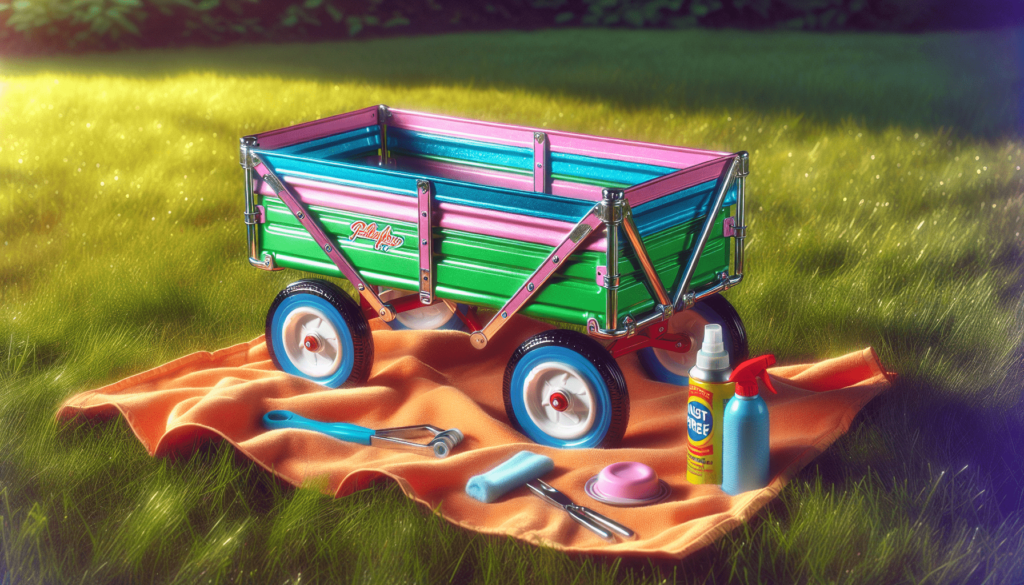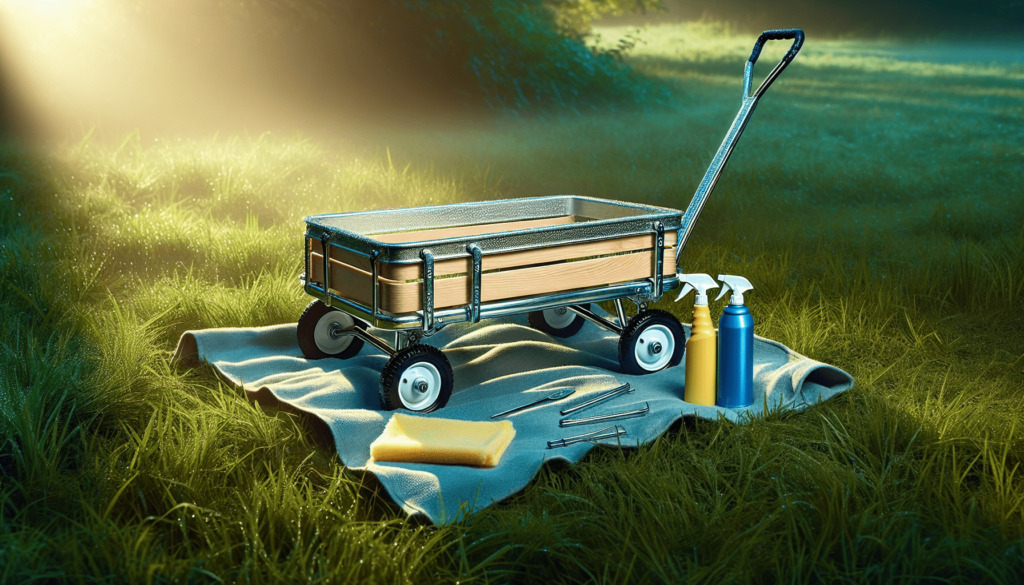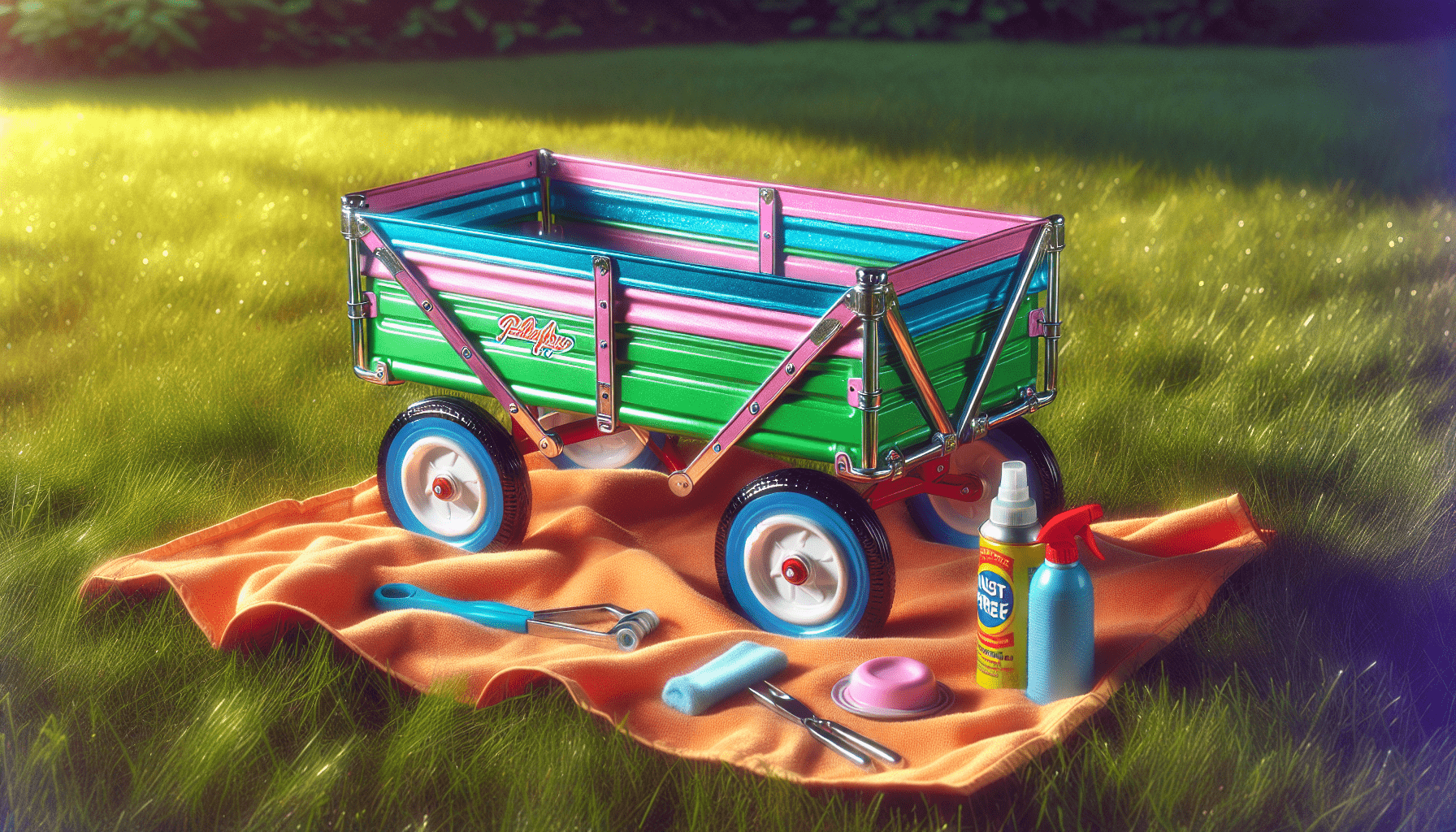Have you ever looked at your trusty folding wagon and noticed a few unwanted spots? It’s a real bummer when your favorite outdoor companion starts to show signs of rust. This article will guide you on how to keep your folding wagon rust-free so you can enjoy years of reliable service without worrying about deterioration.

Understanding the Causes of Rust
Rust is more than just an unsightly blemish; it indicates that metal is reacting with moisture in the air. When you understand what causes rust, it becomes much easier to prevent it.
The Chemistry Behind Rust
Rust forms when iron oxides develop due to a reaction between iron, oxygen, and moisture. This process accelerates in humid environments or when your wagon is exposed to water. Knowing this can help you take preventive measures effectively.
Environmental Factors Contributing to Rust
Here are some pivotal environmental factors that contribute to rust formation:
| Factor | Description |
|---|---|
| Humidity | High levels of moisture in the air can speed up rust formation. |
| Saltwater Exposure | If you’re in coastal areas, saltwater can accelerate corrosion. |
| Temperature Fluctuations | Rapid changes in temperature can lead to condensation and promote rust. |
| Abrasive Elements | Dirt, mud, and sand can scratch the surface, allowing moisture to penetrate. |
Your folding wagon may be subjected to various environmental conditions that are beyond your control. However, understanding these elements can help you mitigate their effects.
Choosing the Right Material
Not all folding wagons are created equal. The material they’re made from plays a significant role in their vulnerability to rust. If you’re shopping for a new wagon or thinking about your current one, here are some key materials to consider.
Steel vs. Aluminum
These are the most common materials used in folding wagons.
- Steel: Generally more affordable but prone to rust if not coated properly.
- Aluminum: Naturally resistant to rust, making it a costlier but often wiser investment.
Coatings and Finishes
Some wagons come with protective coatings that offer additional rust resistance. Look for:
- Powder Coating: A baked finish that adds a layer of protection.
- Galvanization: A process where zinc coats the iron to protect it from moisture.
Choosing a wagon with the right material and protective finishes is your first line of defense against rust.
Proper Maintenance Practices
Once you have the right wagon, regular maintenance is vital to keeping it rust-free. Consistent upkeep can go a long way in preserving its condition.
Cleaning Your Wagon
The first step in maintenance is regular cleaning. Here’s a quick cleaning routine:
- Gather your supplies: You’ll need mild detergent, a soft brush, and a towel.
- Wash your wagon: Use soapy water to clean the surface. Pay special attention to crevices where moisture can hide.
- Rinse thoroughly: Ensure there’s no soap residue left behind, as this can attract dirt and moisture.
- Dry: Wipe down the wagon with a towel to prevent water spots.
Periodic Inspections
Regular check-ups will help you identify any early signs of rust before they become a bigger issue. Here’s how to make inspections effective:
- Weekly Checks: Look for scratches or areas where the paint might be chipped.
- Seasonal Reviews: Inspect the wagon more thoroughly at the start of each season to prep for upcoming outdoor activities.

Storage Recommendations
How and where you store your folding wagon can significantly impact its longevity. Adjustments to your storage practices can minimize rust risks.
Indoor Storage
Whenever possible, keep your wagon inside, especially during adverse weather. Here are some tips for indoor storage:
- Dry Environment: Store it in a climate-controlled area away from humidity.
- Elevated Surface: Avoid placing it directly on the ground, as moisture from the floor can transfer to the wagon.
Outdoor Storage
If you must leave it outside, consider the following protective measures:
| Method | Description |
|---|---|
| Use a Cover | A waterproof tarp can add a layer of protection. |
| Elevate from Ground | Store it on a raised platform or shelves. |
| Add Rust-Inhibiting Spray | Use a rust preventive spray on metal parts as a last line of defense. |
Proper storage practices can pay off in extending the life of your wagon.
Rust Removal Techniques
Sometimes, no matter how careful you are, rust can sneak in. If it does, don’t panic! You have options for removing it.
Minor Rust Removal
If you spot surface rust, you can usually handle it yourself:
- Use Sandpaper: Gently sand the affected area to remove rust.
- Apply a Rust Converter: This chemically alters the rust and prevents it from spreading.
- Repaint for Protection: Touch up the area with appropriate paint to seal it.
Major Rust Issues
For more aggressive rust problems, or if you’re struggling to manage it:
- Consult a Professional: Sometimes, the best course of action is to seek expert help.
- Consider Replacement Parts: In cases where parts are severely rusted, replacing them might be more cost-effective than repairs.
Being proactive about rust allows you to manage it effectively without irreparable damage to your wagon.
Consideration of Rust-Resistant Products
Another way to enhance protection for your folding wagon is by investing in rust-resistant products specifically designed for metal.
Rust Inhibitor Sprays
Rust inhibitor sprays can be a straightforward solution for preventing rust formation. Simply apply them to the metal surfaces following the manufacturer’s instructions.
Linseed Oil
Linseed oil serves as an effective barrier against moisture. A thin coat can work wonders, especially for painted surfaces. Here’s how to apply it:
- Clean the Surface: Make sure your wagon is clean and dry.
- Apply Linseed Oil: Use a cloth to apply a thin layer to all metal surfaces.
- Allow it to Cure: Let it sit for at least 24 hours before using.
Wax Coatings
Wax isn’t just for cars! A good wax coating can add an additional layer of protection.
- Apply Wax: Just like you would on a vehicle, apply wax to the surface of your wagon.
- Buff it Out: A soft cloth will help ensure an even coating.
These protective measures can greatly reduce the chances of rust appearing.
The Importance of Immediate Action
You may encounter rust on your wagon at some point. What’s crucial is how you respond to it. Here’s why taking immediate action is beneficial.
Preventing Spread
Once rust takes hold, it can spread quickly. If you catch it early, your efforts will be more successful and less labor-intensive.
Saving Money
Addressing rust problems as soon as you notice them often means avoiding costly repairs or part replacements later on.
Preserving Aesthetics
A clean and rust-free wagon just looks better! You’ll enjoy using it more, especially when you’re out with friends or family.
Embracing a Rust-Free Lifestyle
Incorporating rust prevention into your regular routine turns your efforts into a lifestyle rather than an occasional chore. Start thinking about rust prevention as a part of your outdoor gear management.
Adopting Positive Habits
Try to develop daily habits related to your wagon maintenance. A few minutes spent cleaning or inspecting your wagon will yield long-term benefits.
Share the Knowledge
If you have friends or family members with their own folding wagons, share your knowledge with them. Engaging in conversations about maintenance techniques can be both fun and beneficial.
Conclusion
Maintaining a rust-free folding wagon is more than simply avoiding a few water splashes; it’s about making thoughtful choices concerning material, care, and storage. You can choose the right materials, implement regular cleaning and inspection routines, and store your wagon properly, all together forming a robust defense against rust.
Your folding wagon serves as a valuable partner in countless outdoor adventures. By taking the steps outlined above, you can ensure it remains rust-free and ready for whatever comes your way. Happy wagon adventuring!

